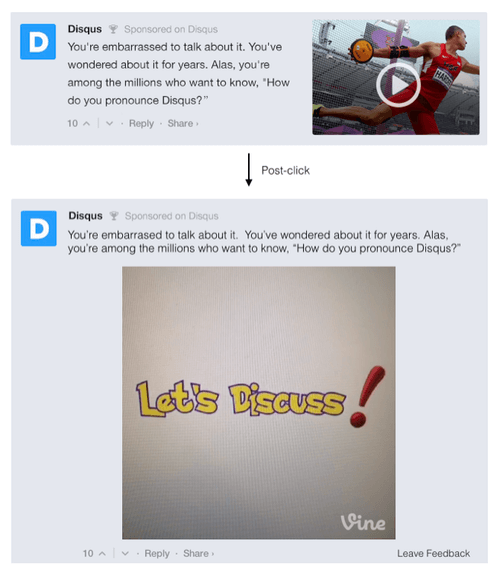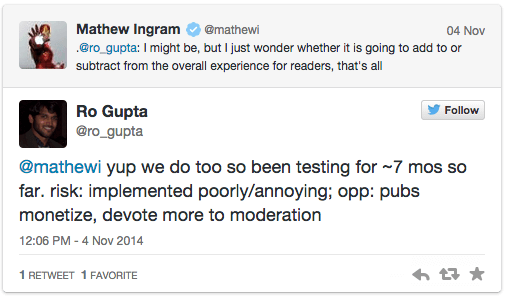I remember working with a client several years ago on building their presence through what we called the “response campaign.”
The idea was to generate a little awareness and build relationships with journalists and bloggers by commenting on articles where the client had an expertise.
Though the idea has evolved to look more like DIY media relations, it still is pretty viable…if you know how to comment well.
Back then, we did things such as leave the comment and then all of our contact information at the end: Gini Dietrich, CEO, Arment Dietrich, https://www.spinsucks.com.
Of course, commenting systems such as Livefyre and Disqus and a Gravatar rendered that unnecessary as that information is automatically collected and people can find you fairly easy with a few clicks of a button.
We evolved as comments became the next big thing.
And then they weren’t.
The Loss of Comments
We all know the joke is not to read the comments, unless you want to spend the day completely disenchanted with the human race.
And, for news sites and other hugely popular blogs, I would agree.
It makes sense for those places to either shut off comments or hand their commenting keys to Facebook or Google+.
Managing the comments and moderating the level of civilness would likely take the time of several full-time people and the return-on-investment would probably not make sense.
But for those of us building a brand and using blogging for business development, shutting off comments—and not spending the time moderating—is akin to biting off your nose to spite your face.
Last spring, Copyblogger announced they were no longer going to allow comments on their blog.
Their reasoning?
The spam was too much to manage.
And then lots of other big-time bloggers followed suit. (I came out firmly on the side of “never, ever, ever gonna do it.”)
Now the pendulum is swinging back toward allowing comments, but things continue to evolve.
Sponsored Comments?
Disqus recently announced they are launching sponsored comments, in an effort to get publishers to open up their commenting section and make some money.
Sponsored comments allow advertisers to target specific comment threads on specific articles with an ad that looks like a comment, and is placed at the top of the comment section. When clicked, it reveals an ad placement not unlike what Twitter offers with its embedded ads and images. Publishers can choose whether to enable the feature or not, and share in the revenue.
Matthew Ingram, a senior writer for Gigaom, tweeted the co-founder of Disqus to get more information.
What he discovered is, yes, they also are wondering what it will do for the overall experience for readers, but their argument is publishers can make some extra dough to pay people to moderate the comments.
You are missing the point! If you have to hire people to moderate comments, you’re doing it wrong!
If you run a blog and you want to build community, which inevitably leads to more referrals, more leads, and more customers, you must allow comments.
And not sponsored comments so you can make money to hire more people to manage the comments.
And Manage Them
Tools such as Livefyre and Akismet allow you to manage the spam.
Every once in a while, a random spammer will make it through and you have to ban those users and delete their comments (I probably do four or five a week), but it certainly doesn’t take a full-time person.
I get wanting to make money from your blog. I get wanting to get more comments.
I don’t think sponsored comments is the way to go.
Use some elbow grease. Comment on other blogs. Link to influencers in your content. And invite open conversation in the comments.
You’ll spend your time building community, not moderating comments.
Evolve your thinking. Spend time with comments, but do it in a way that builds your business.

